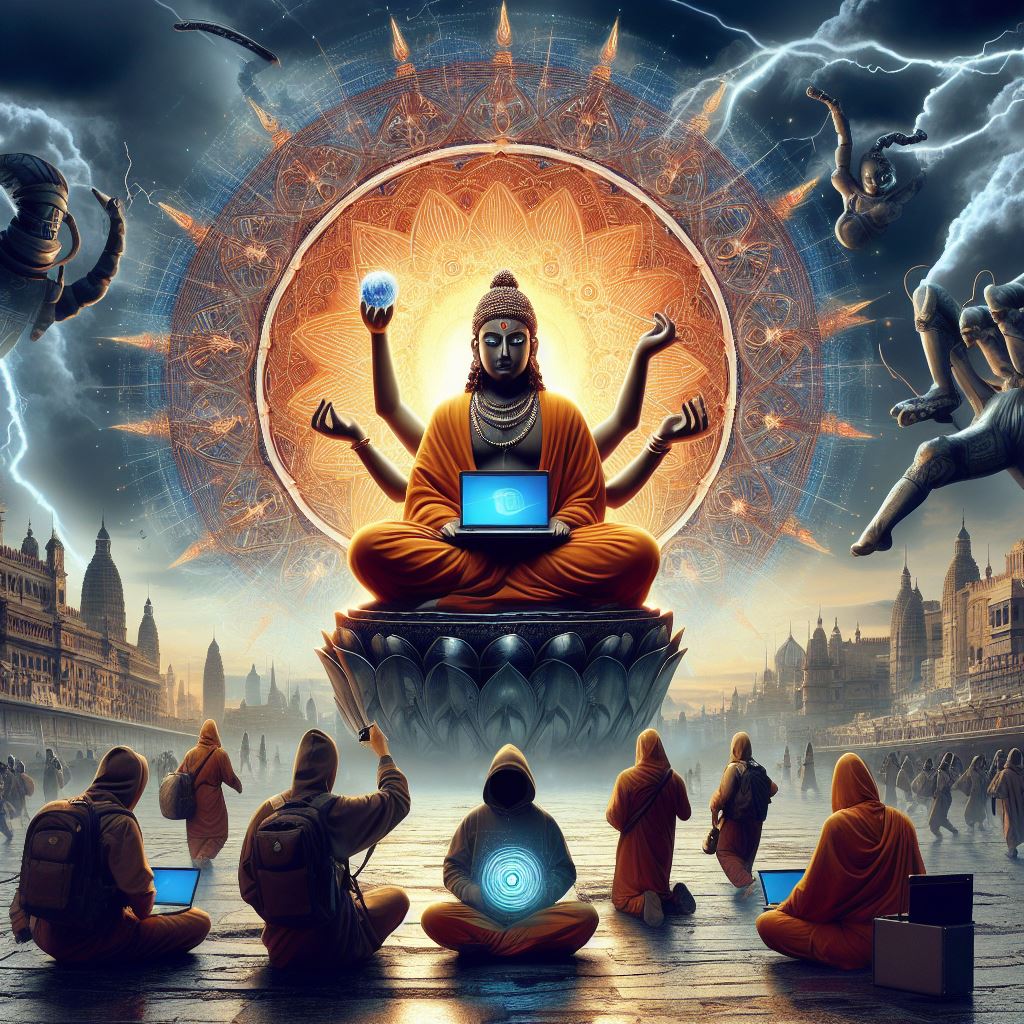
In the enchanting world of digital mysticism, a TikTok tarot card reader gazes through the screen, proclaiming, "If you're seeing this, it was meant for you." Yet, the mystical connection isn't guided by fate but by an algorithmic journey.
The fusion of spirituality and technology has found a home online, accentuated by the rise of generative AI and personalized content recommender systems. The allure of technology often takes on a magical quality, echoing Arthur C Clarke's assertion that advanced technology is indistinguishable from magic.
With OpenAI's GPT-4, religious and spiritual spinoff chatbots have emerged, offering personalized experiences. BibleGPT crafts Christian poetry, Jesus AI facilitates "meaningful conversations with Jesus Christ," and WitchGPT delves into discussions about paganism.
The popular astrology app CoStar introduces a chatbot feature enticing users into the void, offering generated guidance for a small fee. However, the line between harmless amusement and potential exploitation blurs, as these algorithms play on human tendencies to anthropomorphize technology.
Dr. Emma Quilty, a feminist anthropologist exploring magic and technology, discerns between collective-focused spiritual communities and those promoting a "neoliberal spirituality" tied to hyper-individualistic self-improvement ideals. She warns against the commercialization of self-care, divorced from its roots, and notes how social media trends can distort cultural practices, leading to unsustainable market demands for products like crystals and smudge sticks.
While digital platforms enable genuine spiritual communities, the article cautions against blindly attributing magic to technology. Quilty emphasizes that technology, including large language models and personalized recommender systems, is designed to generate value from users. The danger lies in misattributing magical qualities to technology, distracting from its underlying interests and imperatives, often profit-driven.
The article concludes by highlighting the risks when magical thinking permeates policymaking. Governments and companies may embrace technology as a silver-bullet solution to complex social issues, neglecting the nuanced consequences and limitations. In the end, the magical allure of technology should be met with a critical eye, acknowledging its potential for both positive individual experiences and broader societal harm.